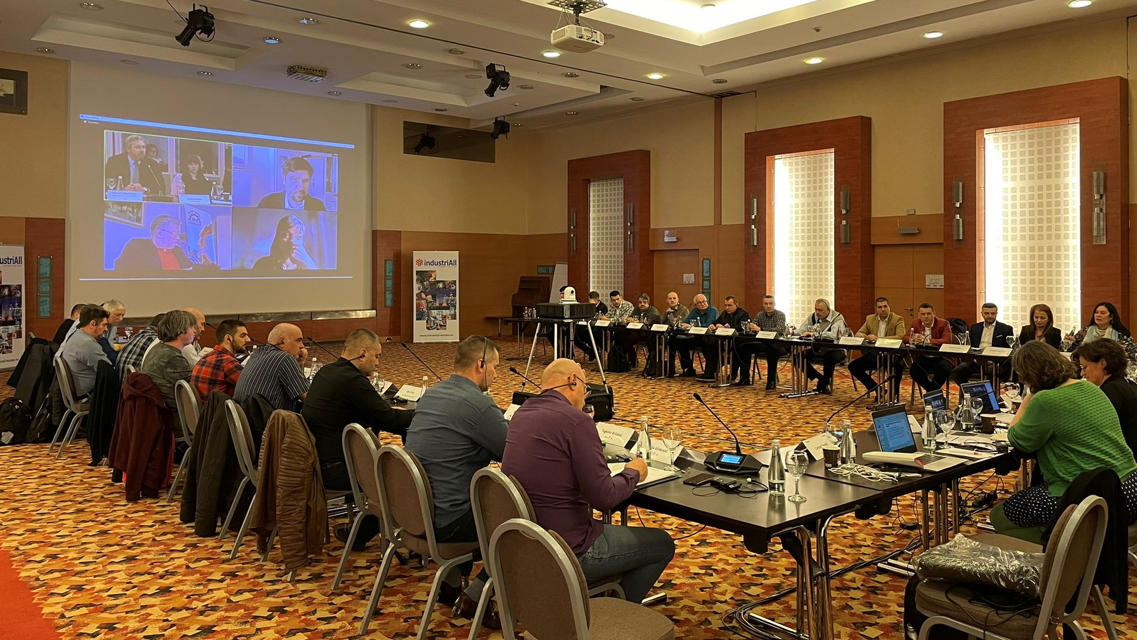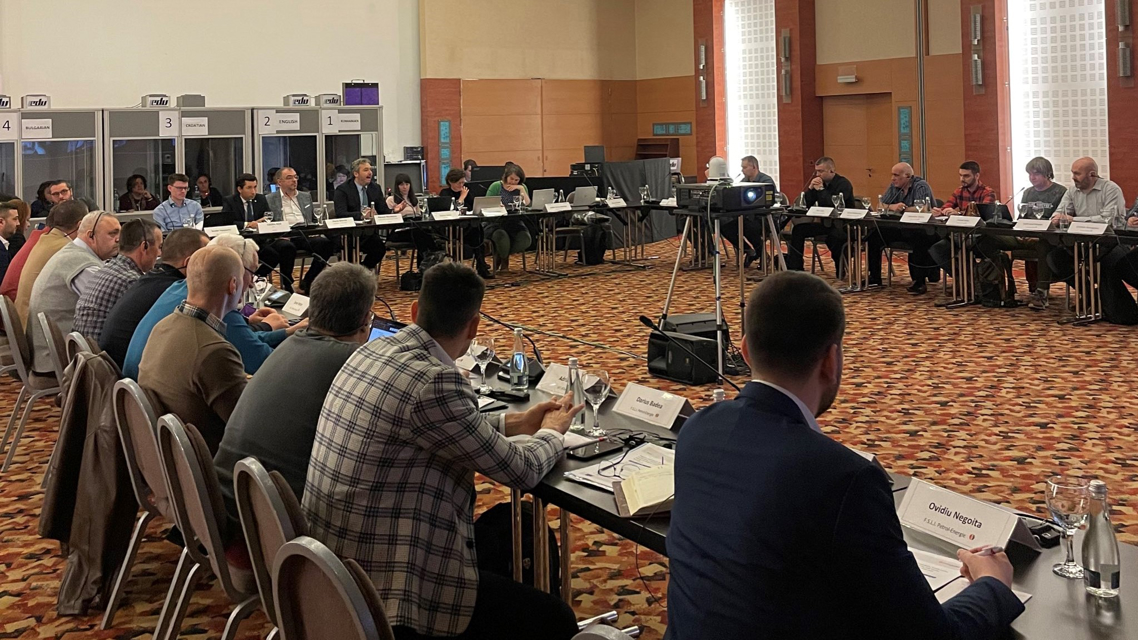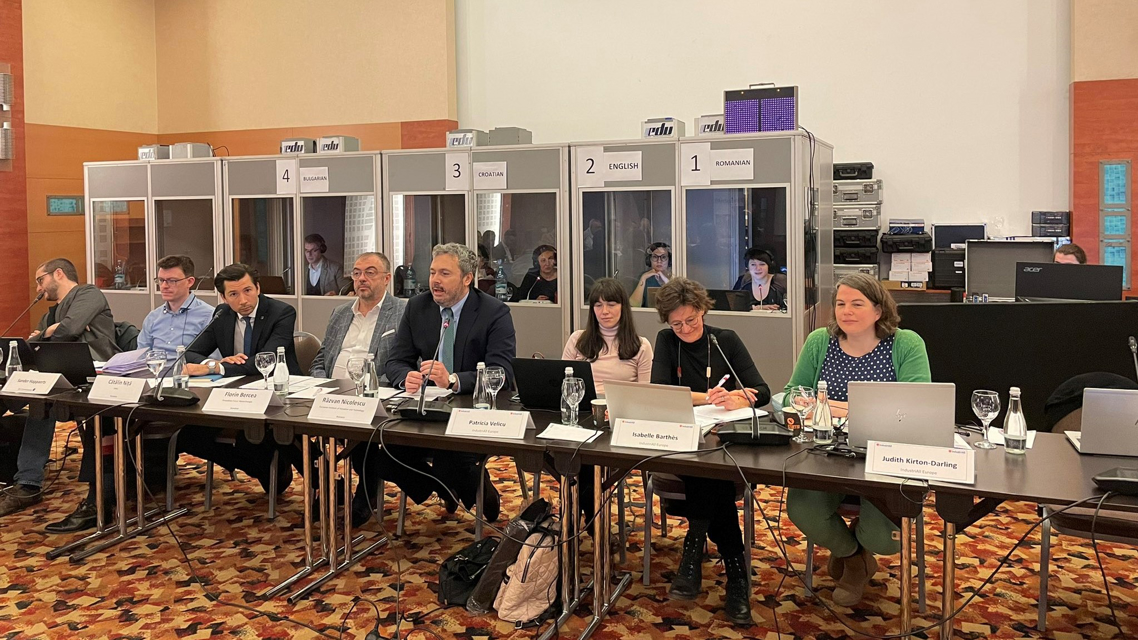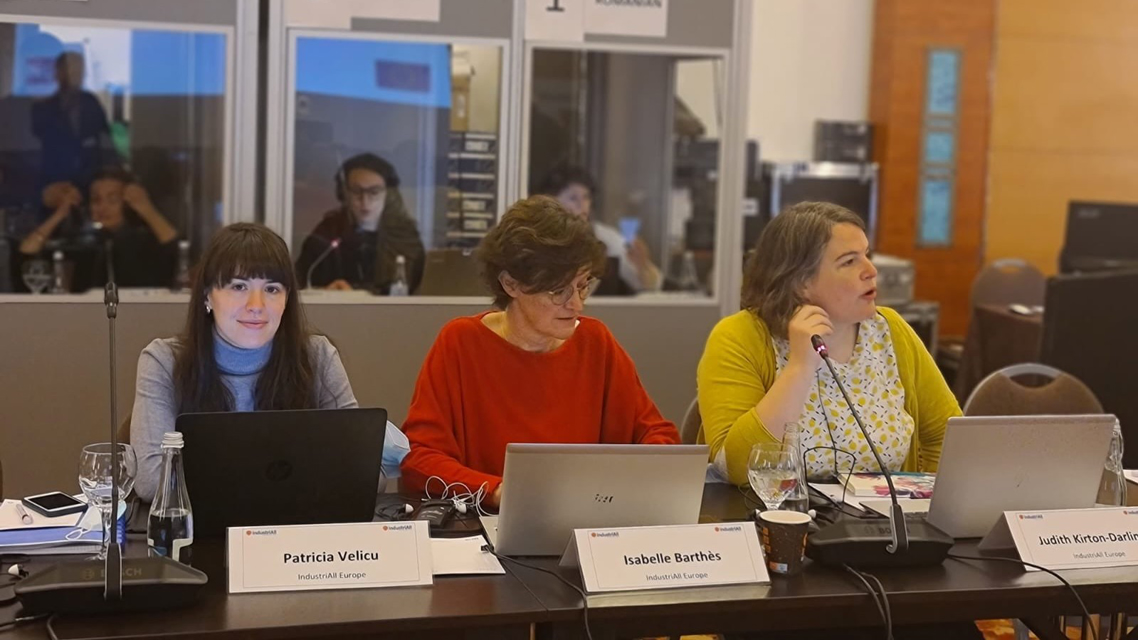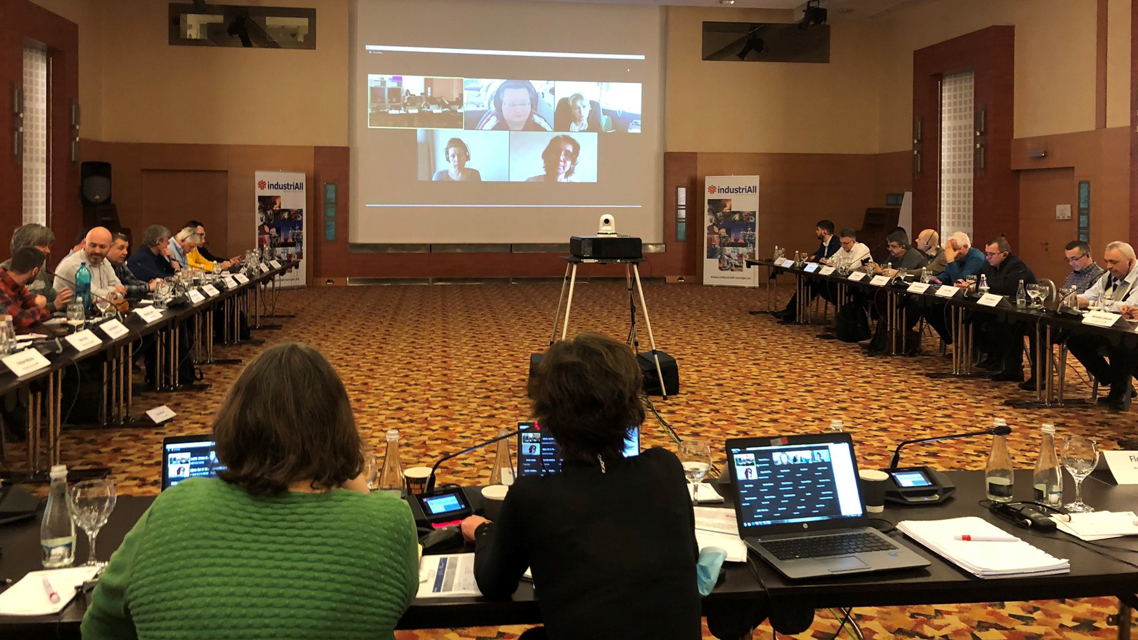Ambitious climate targets must be matched by adequate support for a Just Transition everywhere in Europe.
Affiliates from South-East Europe and the Western Balkans met in Bucharest* to discuss the challenges of decarbonisation and of implementing the Green Deal on the ground.
The countries in these regions are starting from different positions in the green and digital transformation process compared to the rest of Europe (West, North and South), and also to each other. For EU Member States, the green transition moves faster. To reach the required Fit for 55 targets, they have access to dedicated European funds and many national governments provide additional support. EU candidate countries on the other hand, have fewer resources available, but must also align themselves with the climate targets. There are no dedicated Just Transition funds to support workers during the transition.
It is fair to say that no country in the two regions has sufficient resources to reach carbon neutrality in line with Just Transition principles. Whilst national politicians agree climate targets at European level, they fail to involve trade unions in planning and managing the transition. This means unions cannot ensure that climate policies are implemented fairly for impacted workers. Without proper consultations with trade unions, governments risk creating industrial deserts and aggravating alarming depopulation trends in South-East Europe.
The South-East Europe and Western Balkans regions faces significant challenges linked to decarbonising energy systems and the heavy and energy-intensive industries, but also linked to the phasing-out of internal combustion engines. The automotive industry is a significant source of employment in the region. In Romania, Serbia and North Macedonia, for example, the sector represents 13-16% of total manufacturing, a higher percentage than in Germany.
Companies’ investment strategies in South-East Europe and the Western Balkans are a cause of concern. Too often, companies invest in these regions for cheap labour only. Investments in digital technologies, high value-added production and training are an exception. This holds back the digital transformation of industry in the regions and widens Europe’s digitalisation gap. At the same time, companies are expected to adhere to European green regulation standards, and this raises questions about the future of many industries when green and digital investments are lagging. Economic convergence and catching up with Western, Southern and Northern Europe is vital.
Positive examples came from the steel and energy sectors in Romania. The multinational steel producer Tenaris has invested in state-of-the-art technology to produce green steel. Social dialogue between unions and company management is good – a precondition for ensuring a Just Transition for workers.
Social dialogue and collective bargaining are also functioning well in the oil and gas industries. The sectoral social partners are jointly pushing to be involved in discussions about the transitions. Sectoral dialogue in the energy sector is an exception, however. The 2012 Social Dialogue Law passed under pressure from the Troika, and foreign investors (documented in our ‘Together at Work’ campaign) decentralised collective bargaining. The Romanian unions now hope for a reform of the law that is currently under review by the Romanian Parliament.
Isabelle Barthès, industriAll Europe Deputy General Secretary:
“Our workshops, held in six different European regions, have shown that the green and digital transformations are able to deliver quality jobs, provided they are supported by well-functioning social dialogue and collective bargaining. It is therefore crucial to build, rebuild and strengthen social dialogue and sectoral collective bargaining across Europe. Positive reforms, as recently seen in Spain, must be encouraged by the EU institutions and they should also be implemented in the EU’s neighbourhood.”
Judith Kirton-Darling, industriAll Europe Deputy General Secretary:
“We see that climate targets are the same for all, but the starting points and means to achieve them are different across Europe. Ambitious climate targets must be matched by adequate support for a Just Transition everywhere in Europe. This means sufficient resources to prepare workers for the transitions, a good understanding of which jobs are impacted and where, anticipation of change and social dialogue for all workers, and a framework of rights that ensure smooth transitions for individual workers.”
*The event was the sixth in a series of seven regional workshops taking place across Europe until April 2022, as part of industriAll Europe’s Just Transition campaign. The first day was dedicated to countries in the Western Balkans: Serbia, Montenegro, Macedonia, Albania, and the second one to Romania, Bulgaria, Croatia and Slovenia. The next workshop will take place in Dublin on 30 March and will be dedicated to the Central-North European Region. It will draw conclusions from all seven workshops.
Contact: Andrea Husen-Bradley (press and communication), Patricia Velicu (policy adviser)

